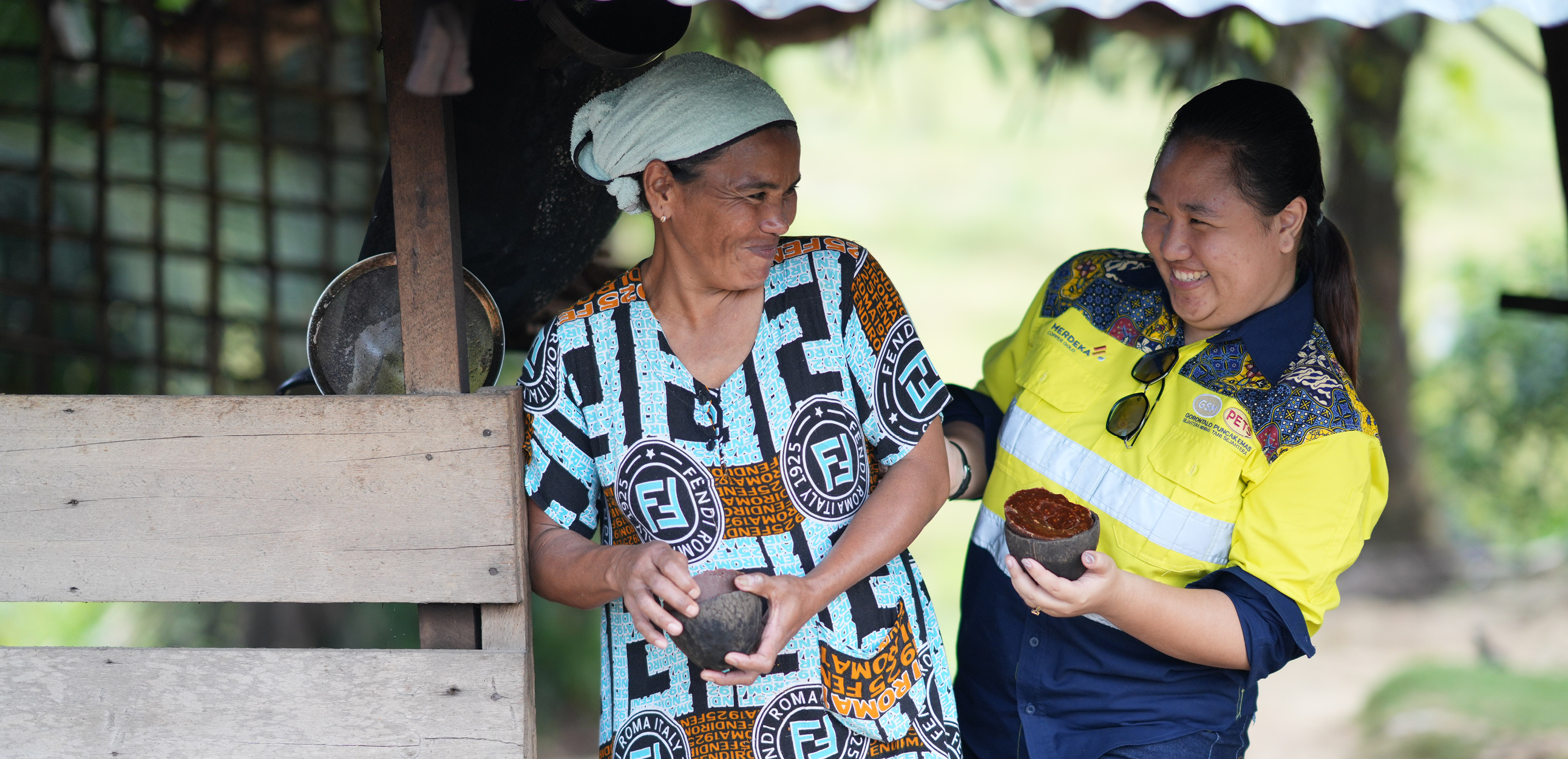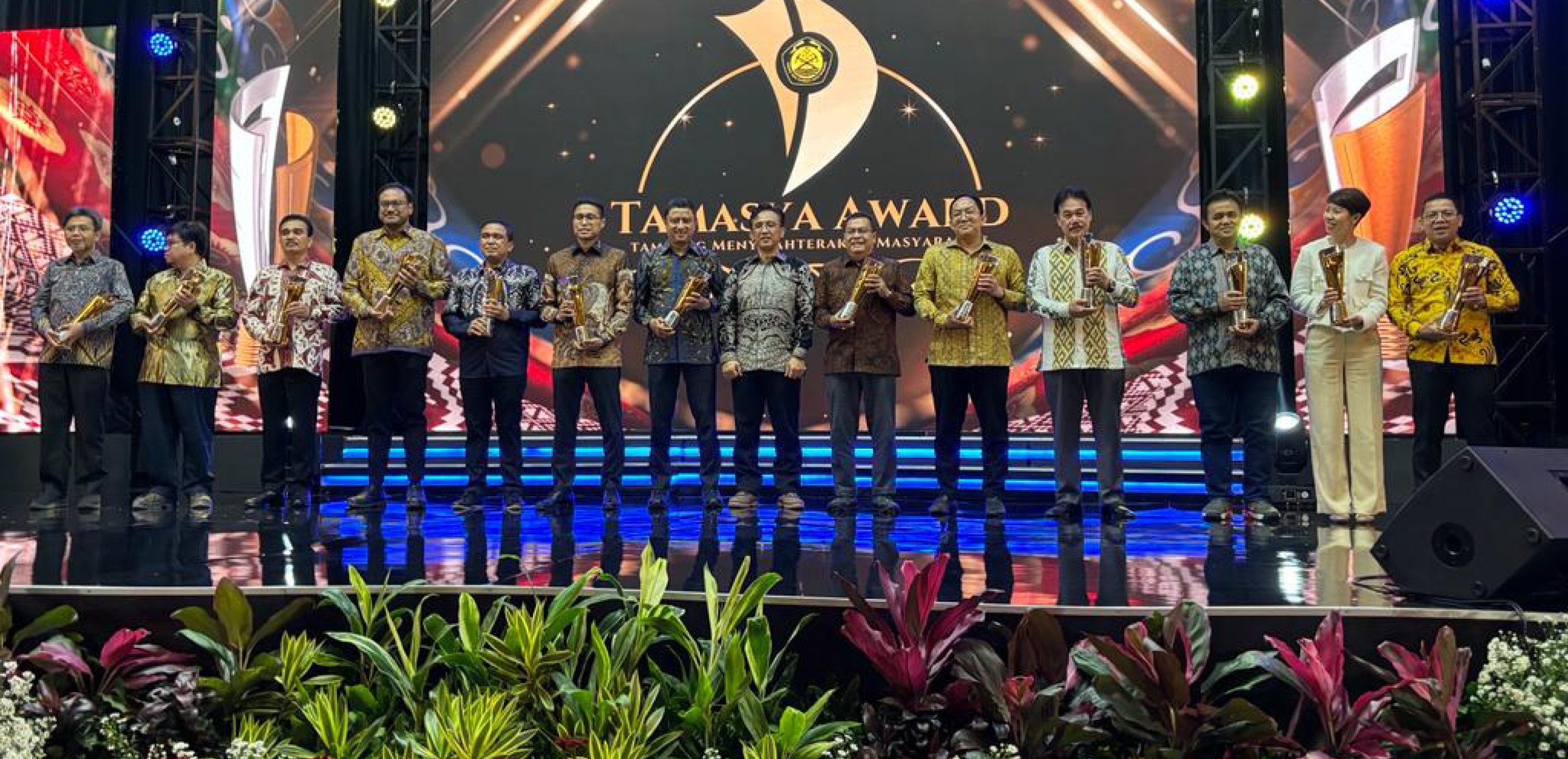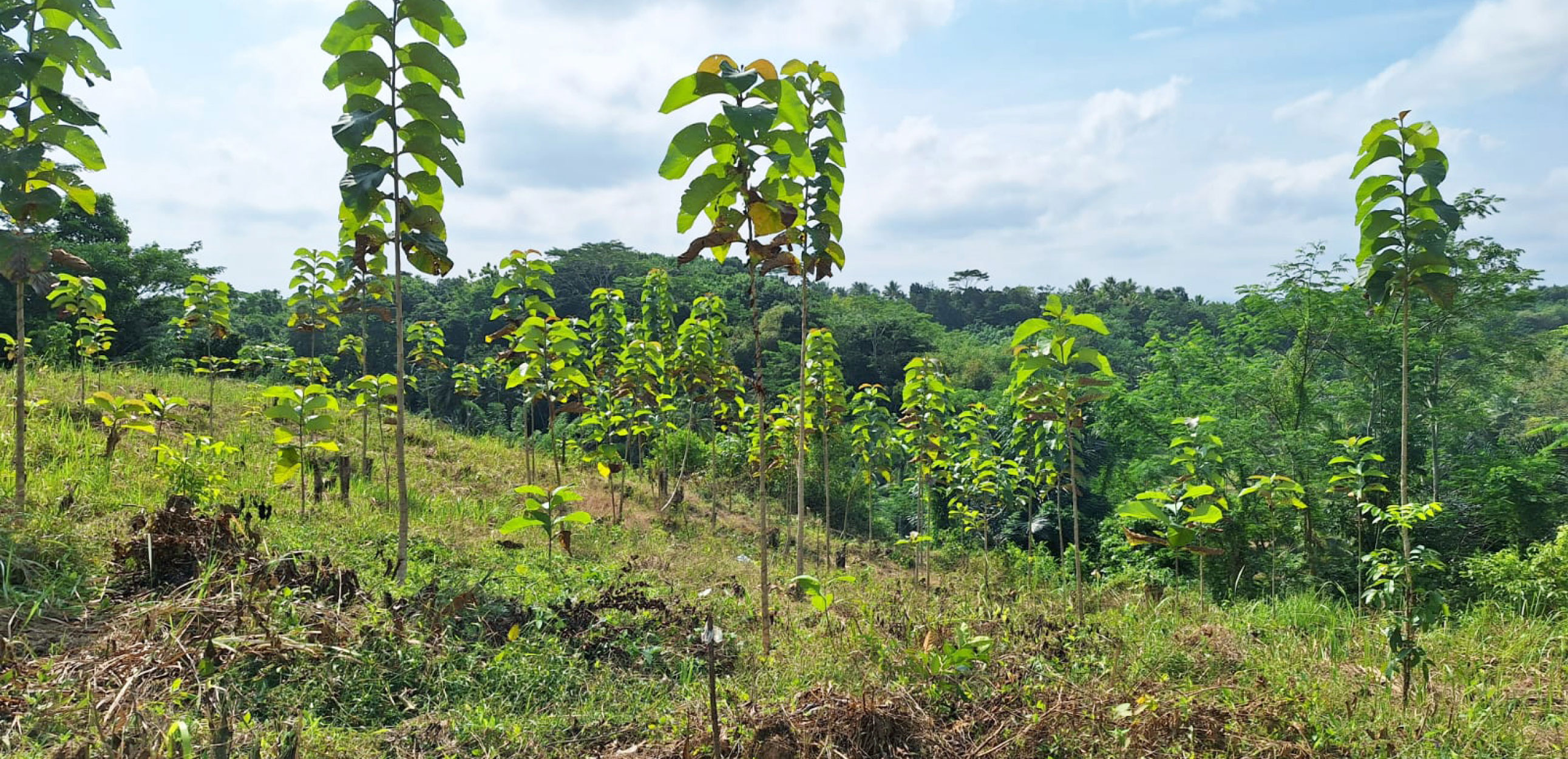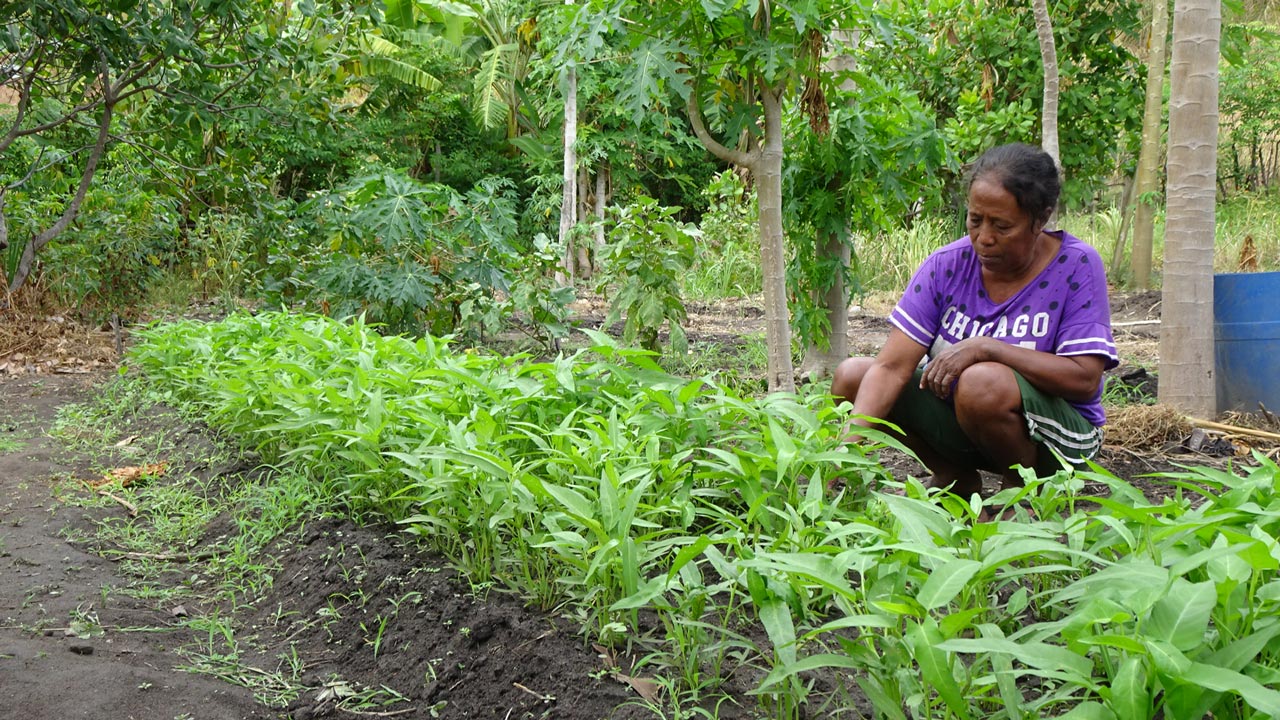
Vegetables from Wetar Copper Mine Local Supplier
Planting vegetables is a new habit for the Wetar people. The tenacity of the mothers made this program a success.
Helena Mawatis was not in the garden. This isn’t what it used to be. Because many people know, she has always been gardening since early in the morning. “Make dolo rice,” she said when she greeted Suasa who came to his house. “Come on,” she said shortly after.
Mama Ena, as she is usually called, took her on foot to her garden which took about ten minutes. This 76-year-old woman from Lurang Village is carrying a bucket filled with provisions and other objects wrapped in cloth. “Last night until morning it rained, so all can be watered,” she said. By saying that, she meant to say that she didn’t go into the garden earlier to water his plants because nature had already done that for her.
Growing vegetables in Lurang Village, Wetar Island, requires frequent watering. As one of the hottest spots in Indonesia, this island, which is located in the middle of the Banda Sea, is indeed very hot with bright sunlight until after six in the evening. Even though it rained last night, Mama Ena watered her garden again after the sun was a little high. Mama Ena, who is still quick to draw, said that the most common gardening activity is watering. Watering in the morning, before the afternoon break, watering, in the afternoon watering again. Then, before dark, Ateng, the gardener’s helper and pig watered to close the day. Mama Ena has a water source from a well in the corner of her garden. The location is only about fifty meters from the shoreline of the Banda Sea and the mouth of the Lurang River. With a depth of only two meters, the well already provides fresh water that never dries up.
In between watering, Mama Ena takes care of the vegetable plants which are divided into several small plots. She uses fertilizer from chicken manure obtained from chicken farmers in Lurang. For seeds, Mama Ena got from Kupang. “Children and son-in-law who buy it,” she said.
Mama Ena has a nature that likes to tell stories and does not want to be silent. “This work makes you healthy,” she said. She admitted that she was very grateful because she was still healthy and able to work and was able to have an income. She compared it to an elderly citizen who was his age or younger but was already sickly.
Currently, Mama Ena is growing mustard greens, carrots, tomatoes, long beans, and eggplant. In addition, she keeps four pigs in the pen, two of which are pregnant. All of them are the source of livelihood for Mama Ena, who currently lives at home with Lodia, her sister. If sold, the pig can give four million rupiahs to Mama Ena. His income from vegetables is uncertain, depending on the harvest. The main buyers of his garden products are Batutua Kharisma Permai and Batutua Tembaga Raya (BKP-BTR), the rest are bought by fellow Lurang residents.
Mama Ena is one of the vegetable growers who participated in the empowerment program organized by BKP-BTR. The results of the program participants’ gardens from communities around the mine in Lurang Village, Uhak Village, and Kampung Baru are absorbed by the company. These various types of vegetables are an important component of the daily menus of hundreds of employees. Apart from vegetables, BKP-BTR also buys fish, chicken meat, chicken eggs, tofu and tempeh, and crackers from these villages.
Community Development—External Affairs BKP-BTR fosters Mama Ena and other suppliers in their respective fields. They then submitted the results to the BKP-BTR partner catering company, namely Prasmanindo Boga Utama (PBU), according to a predetermined schedule. Payment for the purchase will be paid by PBU through the Ina Rifa Foundation in Lurang and the Ama Kefe Foundation in Uhak and Kampung Baru. Mama Ena and others will receive payments from the foundation.
Mama Ena always delivers her garden produce on weighing day at Lurang Market, although not as much as other vegetable growers. She admits that because of his age, the vegetables she produces are not as much as before. However, she still tries to fulfill the type requested by PBU, according to the menu plan that will be served. In between, if there is something that can be harvested, Mama Ena sells vegetables to the people in Lurang. She admitted that his income was used for food and daily needs, the rest was saved.
Mama Ena realized that her age would continue to grow and one day she would no longer be able to work in the garden. What’s the plan after not gardening? “Mom wants to have a shop at home so I can work at home and still have income,” she said.
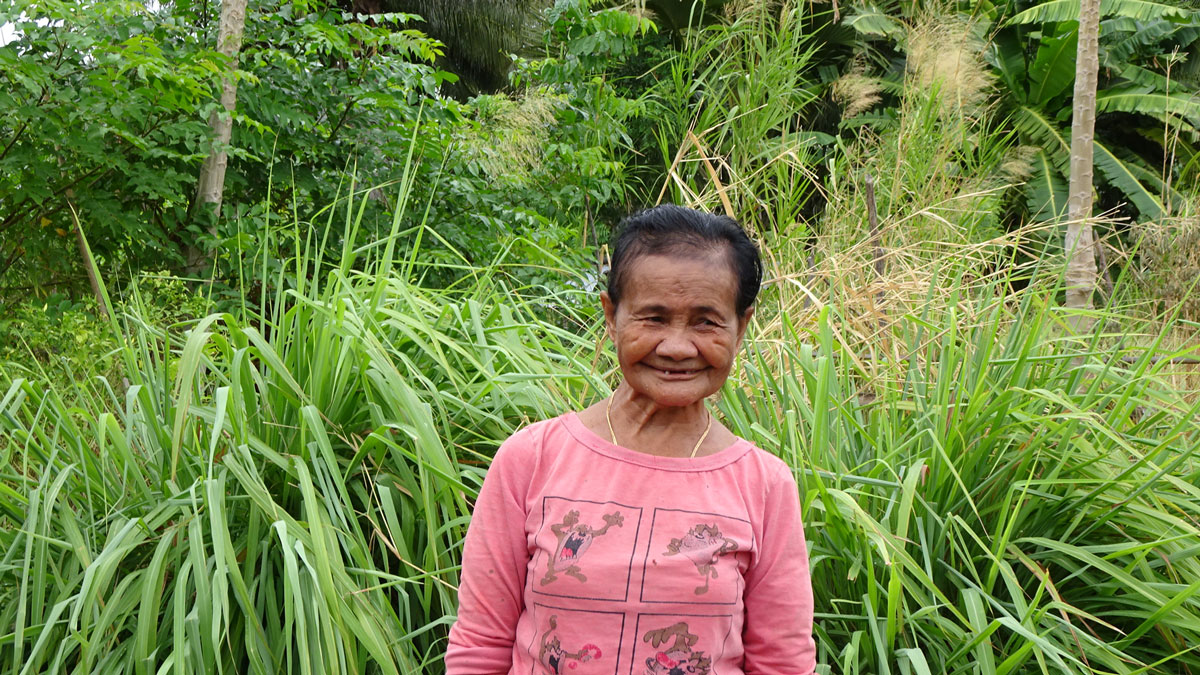
The types of plants in her garden are similar to Mama Ena’s garden because that is what PBU asked for. Mama Dina also got seeds from Kupang which were purchased using regular boats. Likewise, fertilizer in the form of chicken manure is obtained from chicken farmers in Lurang. Mama Dina, the owner’s full name Dina Matena, who comes from Lurang Island, southwest of Wetar Island, has already benefited from her income as a vegetable supplier to BKP-BTR. “To eat and pay for the two children who are still in school,” said the mother of five.
Mama Yos or Yospina Mapekar also has a garden next to the house. To maintain the freshness of the plants, she has prepared water containers that are always filled. She indeed is the one who takes care of most of the time, especially watering and fertilizing the garden, but she feels lucky that his children and grandchildren can help.
This 70-year-old woman still looks fit. She admits that she can stay healthy because she has the principle to always be active in the garden and at home and take care of eating. She admitted that some of the vegetables were for additional food for his family or sold to the residents of Lurang.
What has been the income from the garden? “Make kitchen furniture,” said Mama Yos, who likes the kitchen.
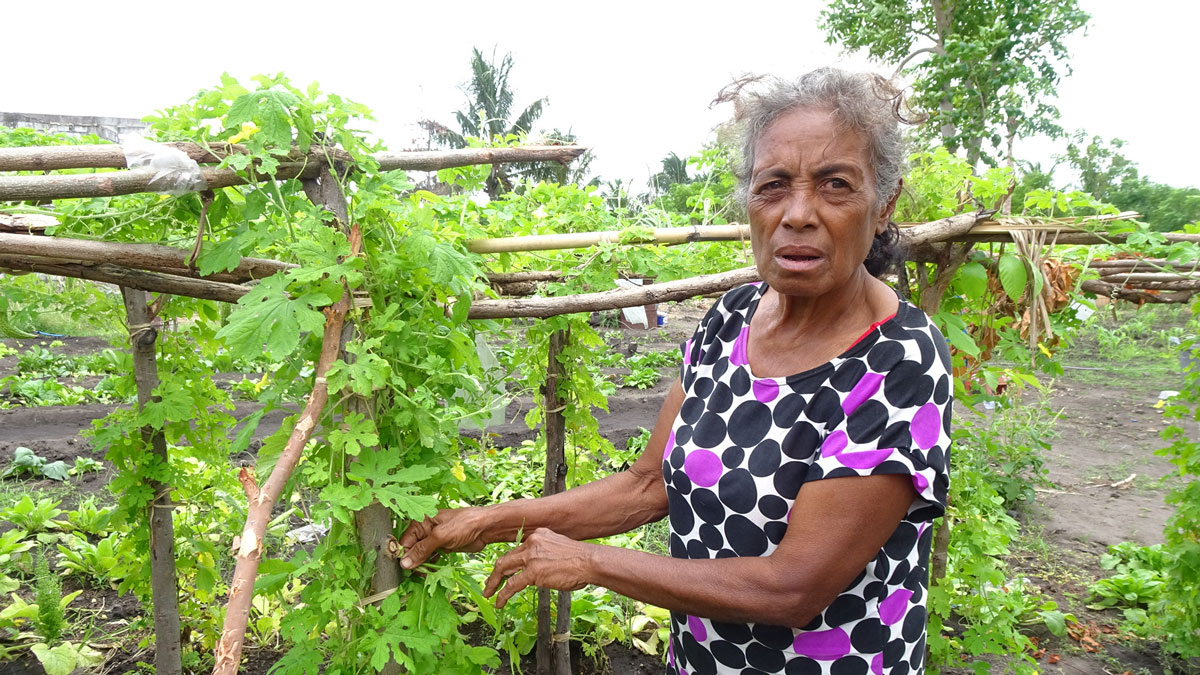
Planting vegetables is a new thing for the people of Lurang and Uhak because they are cultivators. Vegetable planting only started in 2009 when BKP-BTR began to organize community empowerment programs around the operational area. It all started with the Community Development team who set up a demonstration garden and trained several Lurang and Uhak residents.
Mesakh Nanggula, one of the trainers at the time, revealed that the main challenge at that time was to make land that tends to be sandy to be arable and produce vegetables. “First we make beds to hold water and apply fertilizer,” she said. The fertilizers used are manure and compost, not chemical fertilizers.
The training provided included how to adjust the spacing and maintain the planting period which was only a matter of days. Also how to deal with pests and the right times to plant.
“We’ll show first what happened in the pilot garden, then do the same thing in the residents’ gardens,” said Mesakh.
The learning process takes place from one group to another, and direct assistance at the location is carried out intensely. In the early days, there were 56 people from Uhak and more than 100 people from Lurang involved. Now, according to Mesakh, who is still coaching vegetable growers, their number is increasing as the number of immigrants continues to grow.
Initially, all of them received support from BKP-BTR, for example for the procurement of seeds. However, since 2012, all suppliers have become independent. They buy seeds and garden necessities themselves. Mesak’s task with the Community Development team is only to monitor and ensure that the process of procuring vegetables for BKP-BTR continues well.

